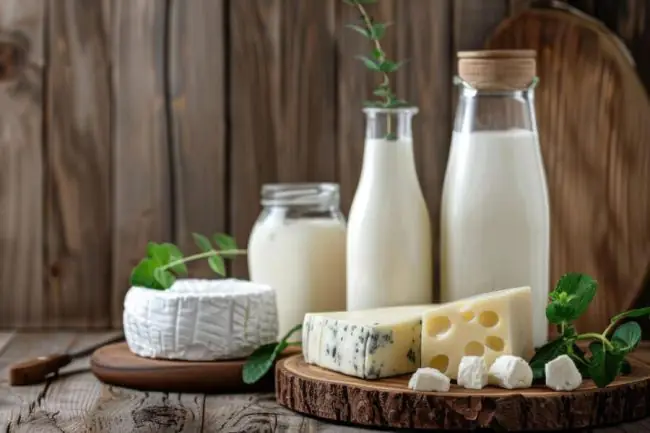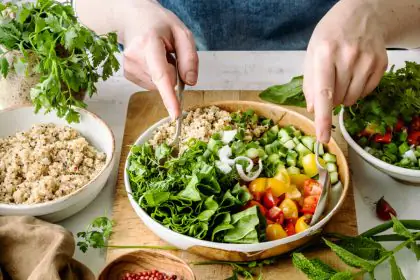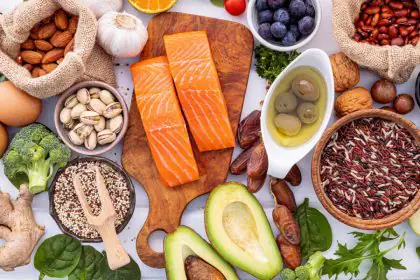As we age, our bodies go through significant changes, and so do our nutritional needs. A proper diet for seniors is important to maintain health, energy, and overall well-being.
Whether you’re a senior yourself or caring for an older loved one, understanding the ideal diet for seniors can be the first step toward better aging. While maintaining a healthy diet for seniors, along with practical tips for meal planning and addressing age-related challenges.
The Importance of a Tailored Diet for Seniors
As seniors age, their metabolism slows down, and they may require fewer calories, but the need for nutrients remains the same or even increases. This is why a tailored diet for seniors focusing on nutrient-dense foods is important.
Ensuring that seniors receive the right mix of vitamins, minerals, and macronutrients can help prevent age-related issues such as weakened bones, muscle loss, and cognitive decline.
Common Nutritional Deficiencies in Seniors
Nutrient deficiencies become more common in older adults due to reduced appetite, changes in digestion, and medication interference. Some of the most common deficiencies in the diet for seniors include:
- Vitamin D: Essential for bone health; a deficiency can increase the risk of fractures.
- Calcium: Another critical nutrient for bone health, often lacking in seniors’ diets.
- Vitamin B12: Necessary for brain function and red blood cell production; B12 becomes harder to absorb as we age.
- Iron: Low levels of iron can lead to anemia, which is more common in seniors.
Key Components of a Senior-Friendly Diet
The ideal diet for seniors focuses on foods rich in essential nutrients, low in unnecessary fats and sugars, and tailored to specific health needs.
Fruits and Vegetables
Fruits and vegetables are packed with vitamins, minerals, and antioxidants, which are essential for maintaining a strong immune system and reducing the risk of chronic diseases like heart disease and cancer.
Aim to include a colorful variety of fruits and veggies in every meal. Leafy greens (like spinach and kale), berries, and cruciferous vegetables (like broccoli and cauliflower) are especially beneficial in the diet for seniors.
Lean Proteins for Muscle Health
Muscle mass naturally declines with age, so it’s important for seniors to consume enough protein to maintain strength and prevent muscle wasting. Go for lean protein sources like:
- Chicken and turkey
- Fish (rich in omega-3 fatty acids, which support heart health)
- Beans and legumes
- Eggs
Whole Grains for Fiber
Whole grains like oatmeal, brown rice, and whole-wheat bread provide necessary fiber, which aids in digestion and helps prevent constipation a common issue among seniors.
Fiber also supports heart health by helping to control cholesterol levels, making it an essential component of any diet for seniors.
Dairy Products for Calcium and Bone Health
As seniors are at higher risk for osteoporosis, ensuring an adequate intake of calcium and vitamin D is important for bone health. Include low-fat or fat-free dairy products like milk, yogurt, and cheese in their diet for seniors.
For those who are lactose intolerant, alternatives like almond milk fortified with calcium and vitamin D are great options.
Healthy Food Choices for Seniors
To support overall well-being, seniors should prioritize nutrient-dense foods that fuel their bodies with essential vitamins and minerals. Some key foods to include in a diet for seniors:
- Fruits like berries, apples, and bananas for vitamins and fiber.
- Vegetables such as spinach, sweet potatoes, and carrots for antioxidants.
- Healthy fats like avocados, nuts, and olive oil support brain and heart health.
Avoiding Problematic Foods for Senior Health
High-Sodium Foods
Excess sodium can raise blood pressure and increase the risk of heart disease and stroke, both of which are concerns for seniors.
Limiting processed foods, canned soups, and salty snacks can help keep sodium intake in check, making it an important consideration in the diet for seniors.
Sugary and Processed Foods
Sugary foods and beverages can lead to weight gain, diabetes, and energy crashes. Processed foods often contain unhealthy fats, sugars, and sodium, all of which should be minimized in a senior’s diet for seniors. Focus on whole, natural foods instead.
Tips for Successful Meal Planning and Preparation
Meal planning can simplify maintaining a healthy diet for seniors, especially for those who may have limited energy or motivation for daily cooking.
Portion Control and Nutrient Balance
As seniors typically need fewer calories, portion control becomes important. Serve smaller, balanced meals that contain a mix of proteins, healthy fats, and whole grains to align with the diet for seniors.
Meal Prepping and Batch Cooking
Batch cooking can help ensure seniors always have access to healthy meals without the daily effort of cooking. Prepare larger quantities of food, like soups or casseroles, and freeze them in individual portions.
Smart Grocery Shopping Tips
Make a shopping list that focuses on fresh, whole foods, and stick to it. Avoid processed, pre-packaged meals that are high in salt and sugar. Additionally, look for high-fiber and low-sodium options when shopping for grains and canned goods.
Special Considerations for Seniors’ Dietary Needs
Managing Chronic Conditions Through Diet
Many seniors deal with chronic health conditions like diabetes, heart disease, or arthritis, all of which can be managed with a tailored diet for seniors.
For example, a heart-healthy diet rich in fruits, vegetables, and healthy fats can help manage blood pressure, while a low-sugar, high-fiber diet is essential for controlling diabetes.
Dealing with Changes in Taste and Appetite
Aging can cause changes in taste or appetite, making food less enjoyable. Adding herbs and spices instead of salt can improve flavor while ensuring that meals are colorful and visually appealing and can stimulate appetite.
Addressing Issues with Chewing or Swallowing
For seniors who have difficulty chewing or swallowing, consider softer foods like cooked vegetables, smoothies, and pureed soups that are easier to eat but still nutrient-dense.
Practical Advice for Healthy Eating in Older Age
Staying Hydrated
Seniors often have a reduced sense of thirst, making dehydration a concern. Encourage frequent sips of water throughout the day, and include water-rich foods like fruits and vegetables to help maintain hydration.
Physical Activity
Combining a healthy diet for seniors with regular physical activity is key to maintaining muscle mass, bone strength, and overall vitality. Even light activities like walking, gardening, or gentle yoga can make a big difference.
Seek Guidance from Healthcare Professionals
Before making significant changes to a senior’s diet for seniors, it’s always a good idea to consult a healthcare provider. They can provide personalized recommendations based on specific health conditions and nutritional needs.
Conclusion
Maintaining a balanced, nutrient-rich diet for seniors is important for supporting health, strength, and quality of life.
By focusing on fruits, vegetables, lean proteins, and whole grains, and by managing portion sizes and chronic conditions, seniors can enjoy nutritious meals that promote longevity and well-being.
Combine healthy eating with regular exercise and hydration, and don’t hesitate to seek professional guidance when necessary.
FAQs
What is the best diet for seniors?
A balanced diet for seniors rich in fruits, vegetables, lean proteins, and whole grains, with limited processed foods, is ideal for older adults.
What should a 70-year-old eat to lose weight?
Focus on portion control, lean proteins, whole grains, and plenty of vegetables while avoiding sugary and processed foods.
What foods should the elderly eat less?
Seniors should limit their intake of high-sodium, sugary, and processed foods.
What is the number one fruit that seniors should eat?
Berries, such as blueberries or strawberries, are packed with antioxidants and vitamins that support healthy aging.







